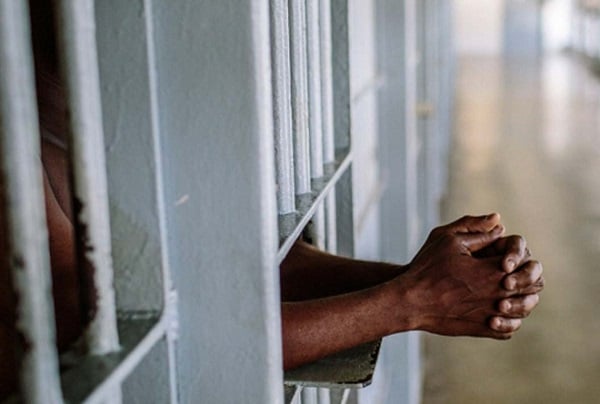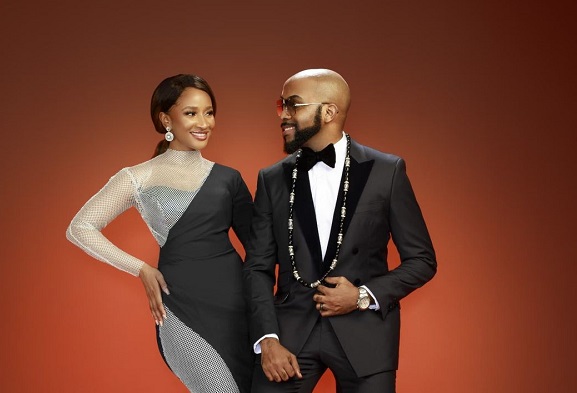This is not just about Nollywood films, which is why there’s no Nollywood in the headline, just in case you hadn’t noticed. In the first instance, the film that got me angry enough to write this is a South African film on Netflix called African America directed by Muzi Mthembu. It’s the story of a woman Nompumelelo or Lelo for short (Phumelele Mthembu), who needs to prove something to herself- She needs to achieve her dream of performing on Broadway in New York. By the way, Phumelele/Phumi and the director are sister and brother. They’re both also the film’s co-writers and producers.
Back to Lelo, to actualize this Broadway dream of hers, she breaks a lot of rules and hearts. She steals money (600k, Rand I assume) from her employers to fund her trip. Then she breaks the heart of at least one person- Tumelo (Thami Buti), her husband who according to her is not her real husband because what they had was a traditional marriage. Never mind that a substantial number of cows have been given as lobola. Yet, Lelo and her mother said it’s only when papers have been signed and a big ceremony has been held complete with a red carpet that it can be called a real marriage. Suffice it to say that as many have pointed out, the so-called white wedding is the traditional marriage of English people just as the English language is their own vernacular. But that’s a story for another day.
I would’ve completely forgotten about this film and put it down on my ‘fail list’ were it not for its ending. Yes, the story pushed the limits of believability. So, Lelo goes to New York and in a few short months works as a baby nanny where she gets sexually harassed by the white husband of a black woman, gets married for Green Card and I mustn’t forget, performs on Broadway. Phew! How can a mother employ someone literally off the streets to live in her home, and take care of her baby? Then before you can say Lelo, her new husband is violent with her. Even though Lelo is fighting to get a bigger role in the Broadway show she is in, it becomes clear to her she must return home. And why not? Many cities in South Africa can hold their own against New York. In any case, doesn’t the cliché ‘North, East, South or West’ end with ‘Home is best’? There’s just the little matter of being a wanted person for the money she’s stolen. All that’s settled by her ‘not real’ husband when he pays her bail money. She goes to return the money to her office-something about not coming earlier because her accounts had been frozen, bla bla. By the way, in her short stint in New York, Tumelo visits her and sees her with her new husband, and she basically chooses Jaquan (Anthony Goss), the arrangee husband. All this in a 96-min film.
It’s after Lelo returns home to South Africa that the story really goes south (no pun intended). She returns to discover that her best friend, Phindile (Zandile Lujabe), is now an item with her ‘fiancé.’ This is the same friend who encouraged her to take her traditional marriage more seriously. As Lelo waxes self-righteous, no one reminds her of all the things she said before leaving for America. Or that she’d rejected her not-so-real husband for a man she just met, not that long ago. Trying to turn her into the victim just can’t work. Are we supposed to be angry with the best friend?
Advertisement
Here’s Lelo’s last conversation to Tumelo: “But let’s get real, Tumelo, your wife was unhappy. (Now she wants us to believe she is his wife). She skipped the country, the police was looking for her, and you stayed behind, and you fucked her best friend…” (This is a great line except that Tumelo did go after Lelo in New York and she rejected him. Am I the only who remembers this?)
“But what were we thinking? Were either of us really ready for marriage, Tumelo…?
–This is the kind of conversation you have when you’ve developed cold feet a few hours to your marriage-and good friends and loved ones then step in to remind you how much you love your husband-to-be. Not the kind of statement to make fresh from marrying another man whom you lived with as a real man and wife. Plus, I’m not sure of “were either of us…?”
Advertisement
“How could I have been happy with someone I can’t even talk to, someone who can’t even stand the sound of my own voice?” But the last scene before Lelo skips town shows her and Tumelo agreeing that being traditionally married won’t change them. What’s she on about?
“I just wanted to say that I love you Tumelo. Not as a buddy, but as my …husband. And if I’m your wife and I’m sorry…I’m terribly sorry, then it’s your job to forgive me. New York was unrealistic but this… this is marriage.” (I just hope that there aren’t many real people who think like Lelo. Still, some dead feminists must be turning in their graves).
But how do you think the film ends? Lelo’s spiel must’ve worked as Tumelo catches up with her at home, and they end up at the back of her car …What was the point of the ‘ménage à trois’ again?
And I’m struggling very hard not to ask: What’s the point of African America? I understand that the idea is to celebrate one’s homeland. You’ll be reminded of this especially in Donald Trump’s America which is the period the story is set. In Nigerianese, we say: ‘what you’re looking for in Sokoto (far north of Nigeria) is in your Sokoto (Yoruba word for trousers). So, I get the intentions of the creators. But as another cliché goes: The road to hell is paved with good intentions.
Advertisement
Speaking of Nollywood, (how can I forget Nollywood?) I’ve already mentioned 2 Weeks in Lagos (directed by Kathryn Fasegha) whose ending feels rushed and raises more questions. Keme’s (Mawuli Gavor) mother (Joke Silva) nearly gets killed by the girl Lola (Beverly Naya) he’s in love with, the mother who’s just fought Lola’s mum (Shaffy Bello). That same mother, with no plausible explanation or an attempt by his mother to show remorse, next thing, she is dancing with everyone at Keme and Lola’s wedding. Haba! Would it have been so hard to make this monster-in-law apologize? At least to help us make some sense of this supposed rebirth.
Then there’s Finding Hubby (directed by Femi D. Ogunsanwo). My main issue with Finding Hubby, is that the big twist comes with barely ten minutes to the end of the film. Oyin Clegg (Ade Laoye), a girl about town manages to find Mr Right who also appears to be Mr. Perfect. She catches him-Yomi Kester-Jacobs (Paul Utomi) in a compromising position with another man. With barely ten minutes to the end of the film, people! There was nothing that led to this. Yet, all of a sudden, we’re to believe that Oyin, the same Oyin who, one hot minute ago was using some system of elimination to select guys in her phone contacts to have sex with, no strings attached? That same Oyin now allows her lawyer-mom to talk her into going ahead to marry a man that there’s nothing yet tying them together! Oh, she actually turns to us-the viewers, asking us what she should do. What was all that faffing about for over one hour then? Why couldn’t some context have been created for the ending? Please make us understand how Yomi Kester-Jacobs became a bi or homosexual who couldn’t control his desire and then decides to do whatever with another man, with his soon-to-be-wife Oyin in another room somewhere in the same house. Na so e hard? Second base, jare.







